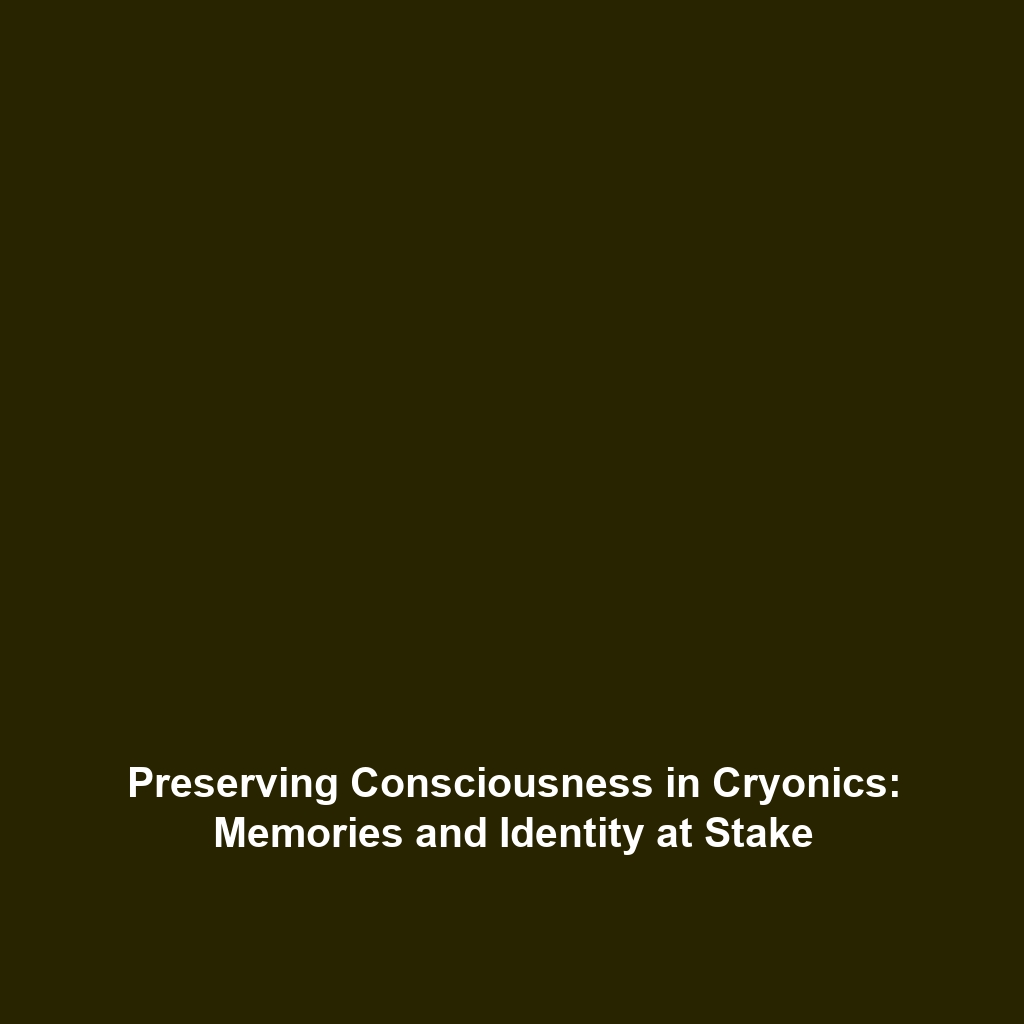Preservation of Consciousness in Cryonics: Ethical Implications
Category: Cryonics & Life Extension
Introduction
The preservation of consciousness is a pivotal issue in the field of cryonics, raising essential questions about the potential revival of individuals after long-term preservation. This ethical debate revolves around whether a revived person would retain their memories, personality, and consciousness. Understanding this topic is crucial as it affects the public perception of cryonics and its application for life extension. As advancements in science and technology continue, the relevance of this conversation grows, potentially reshaping our approach to life, death, and identity.
Key Concepts
Consciousness and Identity
At its core, the preservation of consciousness encompasses the intricate relationship between our memories, personality, and self-identity. In the context of cryonics & life extension, several key concepts arise:
- Memory Storage: Theories on how memories are encoded and could potentially be reverted.
- Neuroscience Insights: Understanding the brain’s function and its role in consciousness.
- Philosophical Perspectives: Ethical arguments regarding identity after revival.
Applications and Real-World Uses
Understanding the preservation of consciousness has led to several practical applications in the context of cryonics & life extension. Here are some significant examples:
- Cryopreservation Techniques: Methods used to slow down cellular decay.
- Neurological Research: Enhancements in understanding brain function affect the cryonics process.
- Ethical Frameworks: Development of ethical guidelines for the practice of cryonics.
Current Challenges
Despite growing interest, several challenges impede the progress of the preservation of consciousness in cryonics & life extension:
- Scientific Limitations: Lack of empirical evidence regarding the revival process.
- Technological Roadblocks: Current methods may not adequately prevent cellular damage during preservation.
- Ethical Dilemmas: Ongoing debates regarding the implications of reviving individuals with altered consciousness.
Future Research and Innovations
The future of the preservation of consciousness appears promising, with several innovations and research areas gaining traction:
- Advanced Cryopreservation Techniques: New methods aimed at minimizing cellular damage.
- Neural Mapping Technologies: Innovations in understanding and potentially replicating brain function.
- Philosophical Investigations: Research focusing on the implications of identity and memory post-revival.
Conclusion
The preservation of consciousness remains a critical topic within the cryonics & life extension domains, raising vital questions about identity and ethics. As we explore the potentials and challenges associated with reviving individuals, it is essential to engage in informed discussions that bridge science, philosophy, and ethics. For further insights, visit our articles on cryonics methods and life extension technologies to learn more about this fascinating field.
